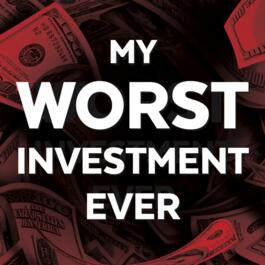
Enrich Your Future 30: The Hidden Cost of Chasing Dividend Stocks
In this episode of Enrich Your Future, Andrew and Larry Swedroe discuss Larry’s new book, Enrich Your Future: The Keys to Successful Investing. In this series, they discuss Chapter 30: The Economically Irrational Investor Preference for Dividend-Paying Stocks. LEARNING: The dividend policy is irrelevant to stock returns. “Stock prices tend to rise in the month before they pay the dividend, because dumb retail investors overvalue dividends, and then they tend to revert back after the dividend gets paid.”Larry Swedroe In this episode of Enrich Your Future, Andrew and Larry Swedroe discuss Larry’s new book, Enrich Your Future: The Keys to Successful Investing. The book is a collection of stories that Larry has developed over 30 years as the head of financial and economic research at Buckingham Wealth Partners to help investors. You can learn more about Larry’s Worst Investment Ever story on Ep645: Beware of Idiosyncratic Risks. Larry deeply understands the world of academic research and investing, especially risk. Today, Andrew and Larry discuss Chapter 30: The Economically Irrational Investor Preference for Dividend-Paying Stocks.Chapter 30: The Economically Irrational Investor Preference for Dividend-Paying Stocks In this chapter, Larry discusses why many investors prefer cash dividends, especially those using a cash flow approach to spending. Larry explains that experts have established that dividend policy should be irrelevant to stock returns, which is supported by historical evidence. Stocks with the same exposure to common factors (such as size, value, momentum, and profitability/quality) have had the same returns, whether they pay dividends or not. Despite theory and evidence, many investors express a preference for dividend-paying stocks.The fallacy of the free dividend As Larry explains, investors tend to assume that dividends offer a safe hedge against the large price fluctuations that stocks experience. However, this assumption ignores that the dividend is offset by the fall in the stock price—the fallacy of the free dividend is a common misconception in the investment world. Larry adds that stocks with the same “loading,” or exposure, to the four factors (size, value, momentum, and profitability/quality) have the same expected return regardless of their dividend policy. This has important implications because about 60% of US and 40% of international stocks do not pay dividends. Thus, any screen that includes dividends results in far less diversified portfolios than they could be if they had not included dividends in the portfolio design. Less diversified portfolios are less efficient because they have a higher potential dispersion of returns without any compensation in the form of higher expected returns.Taxes matter Larry notes that what is particularly puzzling about the preference for dividends is that taxable investors should favor the self-dividend (by selling shares) if cash flow is required. Taxes play a crucial role in investment decisions, and understanding their implications is essential for making informed choices. Even in tax-advantaged accounts, investors who diversify globally (the prudent strategy) should prefer capital gains because the foreign tax credits associated with dividends have no value in tax-advantaged accounts.Why
From "My Worst Investment Ever Podcast"


Comments
Add comment Feedback